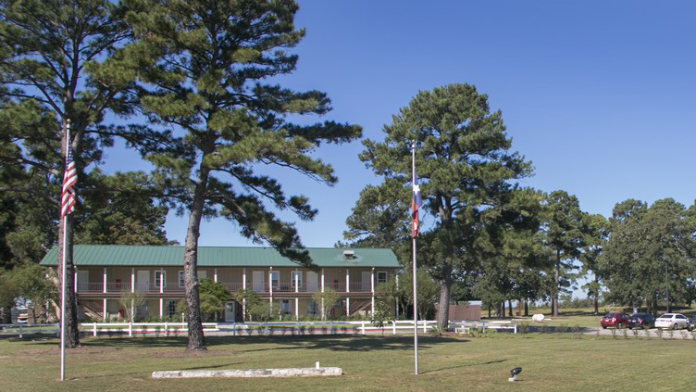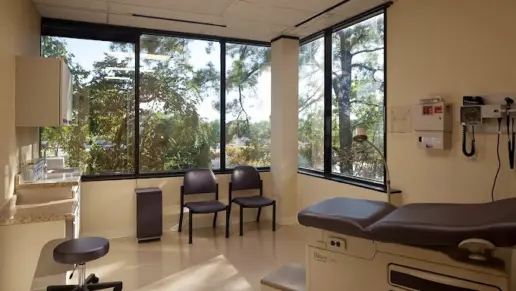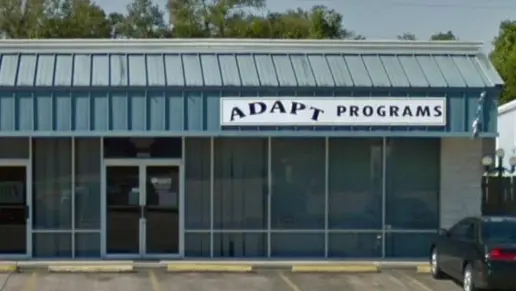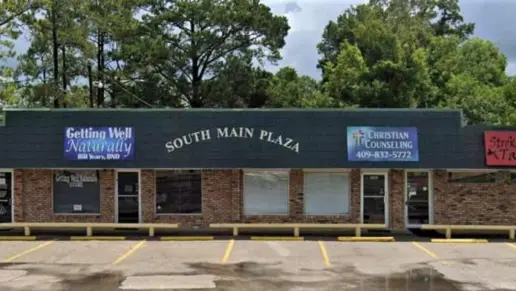I had to put my son into rehab after multiple years of back and forth issues with rehab. His addiction started in college he is now 25 . He couldn’t keep a job and was draining our family financially I’m very happy to say after 40 days at willow springs recovery , he is ...
About Willow Springs Recovery | Texas Drug & Alcohol Addiction Rehab
Willow Springs Recovery | Texas Drug & Alcohol Addiction Rehab offers substance use disorder and dual diagnosis treatment in Bastrop, Texas. Located on 38 acres of stunning Texas countryside, this center provides the ideal space for you to separate from daily distractions and hone in on recovery. They welcome adults, providing a full continuum of care, from medical detox to addiction aftercare.
Whether you need highly structured, continuous care or want to balance life responsibilities while attending treatment, they strive to meet you at any recovery stage. You’ll benefit from a thorough assessment to determine the best level of care for you. Then, you can access a personalized treatment plan with your needs at the forefront. Group and individual therapy, addiction education, art therapy, peer support groups, relapse prevention training and medication management are available.
One incredible feature I noticed was their beautiful campus. They’re conveniently located close to the city but still far enough out to relax and focus on growth. Overlooking a charming pond, their campus offers a pool, a cozy lounge area, a full gym, spacious rooms and a chef staffed kitchen. They ensure you’re as comfortable as possible while working to reach sustained recovery.
I also noticed that they offer 12 Step and non 12 Step programming. Peer support can be an essential recovery element for many. They provide multiple options including Alcoholics Anonymous, Narcotics Anonymous, Cocaine Anonymous, Dual Recovery Anonymous and SMART Recovery. It’s great that you have the choice to include these approaches in your journey.
Many previous clients enjoyed their experiences. Multiple people contributed their newfound sobriety to the growth, healing, and self sufficiency they discovered at the facility.
Latest Reviews
Rehab Score
Gallery

Location
Accepted Insurance






Other Forms of Payment
Private insurance refers to any kind of healthcare coverage that isn't from the state or federal government. This includes individual and family plans offered by an employer or purchased from the Insurance Marketplace. Every plan will have different requirements and out of pocket costs so be sure to get the full details before you start treatment.
Self-pay involves paying for treatment out of your own pocket. You can use savings or credit, get a personal loan, or receive help from family and friends to fund your treatment. If you don't have insurance or your insurance plan doesn't cover a specific program, self-pay can help ensure you still get the care you need.
Military members, veterans, and eligible dependents have access to specific insurance programs that help them get the care they need. TRICARE and VA insurance can help you access low cost or no cost addiction and mental health treatment. Programs that accept military insurance often have targeted treatment focused on the unique challenges military members, veterans, and their families face.
Addiction Treatments
Levels of Care
Treatments
The goal of treatment for alcoholism is abstinence. Those with poor social support, poor motivation, or psychiatric disorders tend to relapse within a few years of treatment. For these people, success is measured by longer periods of abstinence, reduced use of alcohol, better health, and improved social functioning. Recovery and Maintenance are usually based on 12 step programs and AA meetings.
During rehab in Texas, you'll deal with underlying issues that contribute to addiction. By addressing these challenges and learning healthy ways to cope with them, you'll develop strategies that help you live a drug-free lifestyle.
Dual diagnosis rehab is a viable option for drug and alcohol addiction treatment. Inpatient dual diagnosis treatment addresses both mental health disorders and drug addiction at the same time. Alcohol and drug addiction can lead to mental health disorders. People with mental health disorders have a higher chance of developing a drug or alcohol addiction. In fact, 7.9 million of the people in the US have a co-occurring mental health with their substance use disorder, according to a 2014 National Survey on Drug Use and Health.
Opioid rehabs specialize in supporting those recovering from opioid addiction. They treat those suffering from addiction to illegal opioids like heroin, as well as prescription drugs like oxycodone. These centers typically combine both physical as well as mental and emotional support to help stop addiction. Physical support often includes medical detox and subsequent medical support (including medication), and mental support includes in-depth therapy to address the underlying causes of addiction.
Substance rehabs focus on helping individuals recover from substance abuse, including alcohol and drug addiction (both illegal and prescription drugs). They often include the opportunity to engage in both individual as well as group therapy.
Programs



Clinical Services
Cognitive Behavioral Therapy (CBT) is a therapy modality that focuses on the relationship between one's thoughts, feelings, and behaviors. It is used to establish and allow for healthy responses to thoughts and feelings (instead of unhealthy responses, like using drugs or alcohol). CBT has been proven effective for recovering addicts of all kinds, and is used to strengthen a patient's own self-awareness and ability to self-regulate. CBT allows individuals to monitor their own emotional state, become more adept at communicating with others, and manage stress without needing to engage in substance abuse.
Group therapy is any therapeutic work that happens in a group (not one-on-one). There are a number of different group therapy modalities, including support groups, experiential therapy, psycho-education, and more. Group therapy involves treatment as well as processing interaction between group members.
In individual therapy, a patient meets one-on-one with a trained psychologist or counselor. Therapy is a pivotal part of effective substance abuse treatment, as it often covers root causes of addiction, including challenges faced by the patient in their social, family, and work/school life.
Trauma therapy addresses traumatic incidents from a client's past that are likely affecting their present-day experience. Trauma is often one of the primary triggers and potential causes of addiction, and can stem from child sexual abuse, domestic violence, having a parent with a mental illness, losing one or both parents at a young age, teenage or adult sexual assault, or any number of other factors. The purpose of trauma therapy is to allow a patient to process trauma and move through and past it, with the help of trained and compassionate mental health professionals.
Research clearly demonstrates that recovery is far more successful and sustainable when loved ones like family members participate in rehab and substance abuse treatment. Genetic factors may be at play when it comes to drug and alcohol addiction, as well as mental health issues. Family dynamics often play a critical role in addiction triggers, and if properly educated, family members can be a strong source of support when it comes to rehabilitation.
Life skills trainings involve all the skills a person must have in order to function successfully in the world. These include time management, career guidance, money management, and effective communication. Truly successful addiction recovery is based on the ability to not only live substance-free, but to thrive. Life skills teaches the practical necessities of functioning in society, which sets clients up for success in life, and therefore sobriety.
Nutrition therapy, aka medical nutrition therapy (MNT), is a way of treating physical, emotional, and medical conditions through diet. Specific dietary plans are designed by professional nutritionists or registered dietitians, and patients follow them in order to positively affect their physical and mental health.
Experiential therapy is a form of therapy in which clients are encouraged to surface and work through subconscious issues by engaging in real-time experiences. Experiential therapy departs from traditional talk therapy by involving the body, and having clients engage in activities, movements, and physical and emotional expression. This can involve role-play or using props (which can include other people). Experiential therapy can help people process trauma, memories, and emotion quickly, deeply, and in a lasting fashion, leading to substantial and impactful healing.
When used as recommended, nicotine replacement therapy in Texas provides enough nicotine to help you avoid severe cravings and withdrawal symptoms after quitting smoking. This increases comfort so you're less likely to relapse into your smoking habit.
Amenities
-
Gym
-
Residential Setting
-
Private Rooms
Staff & Accreditations
Staff

Medical Director – Medical Team

VP of Operations

Executive Director

Director of Operations

Operations Manager

Clinical Director

CEO

COO and CFO
Accreditations

The Commission on Accreditation of Rehabilitation Facilities (CARF) is a non-profit organization that specifically accredits rehab organizations. Founded in 1966, CARF's, mission is to help service providers like rehab facilities maintain high standards of care.
CARF Accreditation: Yes

LegitScript has reviewed Willow Springs Recovery | Texas Drug & Alcohol Addiction Rehab as part of their certification program, and has determined that it meets the LegitScript standards for legality, safety and transparency.
LegitScript verified in

The Joint Commission, formerly known as JCAHO, is a nonprofit organization that accredits rehab organizations and programs. Founded in 1951, the Joint Commision's mission is to improve the quality of patient care and demonstrating the quality of patient care.
Joint Commission Accreditation: Yes
Accreditation Number: 600377
Contact Information
1128 TX-21
Bastrop, TX 78602










